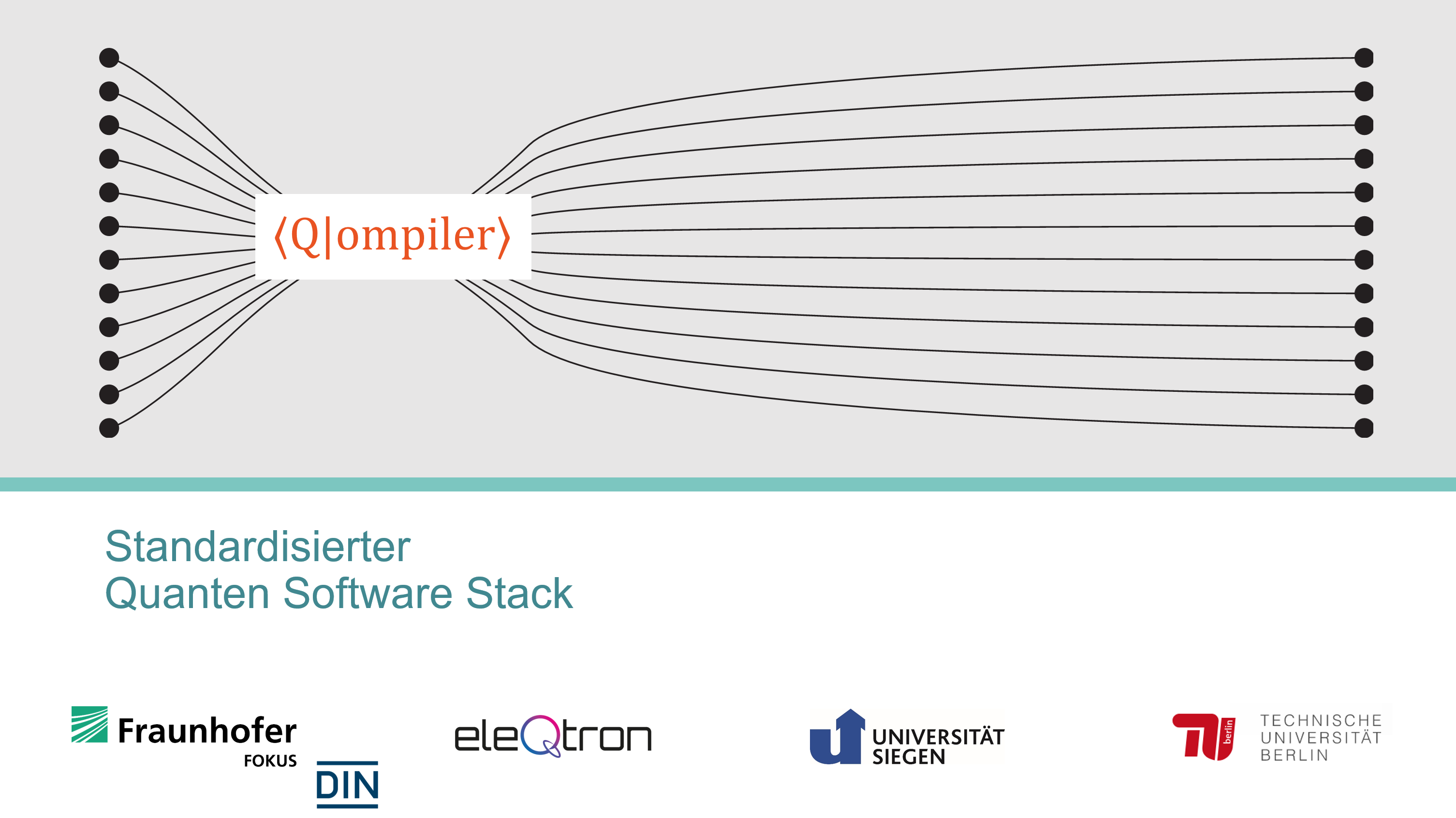Kick-Off Meeting Qompiler
Qompiler Project up and running

The Qompiler project, funded by the Federal Ministry for Economic Affairs and Climate Action with the aim of building an open software framework for the development of applications for innovative quantum hardware, officially started with the kick-off meeting on 18 January.
The meeting, which unfortunately could only take place online due to the tense infection situation, was opened by Dr. Klaus Glasmacher from the BMWK, who emphasised the importance of the funding programme “Quantum Computing - Applications for the Economy” to promote software development for quantum computers. Similar to classical information technology, the user ultimately interacts with the software. Accordingly, it is important that this is as easy to use as possible and still exploits the advantages of the underlying technology.
In the brief presentation of the project that followed, project manager Sebastian Bock addressed precisely these points. The language, which will automate many tedious elements in the writing of quantum programmes, is intended to increase the aforementioned usability. The underlying categorical level is also intended to ensure type safety of the quantum programmes. In order to be able to execute these programmes, a standardisable interface between software frameworks and hardware backends will be developed within the framework of the project, and work will be done on firmware for ion-based quantum computers. With eleQtron GmbH as a partner, it will then be possible to execute the programmes on innovative hardware.
In the question and answer session that followed, there were further interesting discussions. In particular, the standardisation activities were of great interest to the associated partners and the kick-off meeting was a good start for the exchange and further networking for the upcoming challenges.
After the official opening, the project team now has to face these challenges and start developing the planned content.
We will of course report on progress here.
The project team would like to thank the funding from the BMWK and the DLR project management agency for their support in carrying out the project.